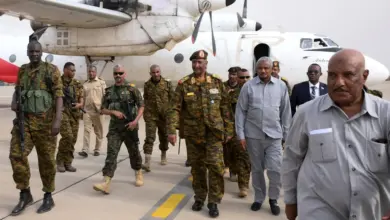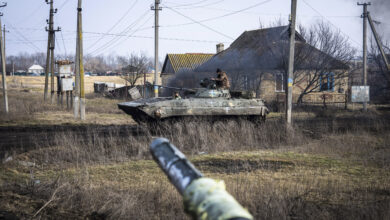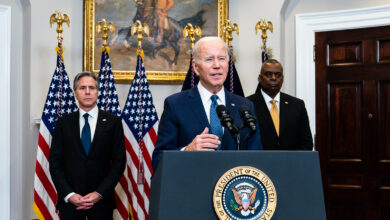As President Barack Obama weighs the U.S. response to chemical weapons attacks against Syrian civilians, one soft power option should still be at top of his to-do list: cutting off access to the U.S. financial system to those doing business with Syria's Bashar al-Assad.
Russian banks and others are reported to be helping the Assad regime circumvent U.S. and EU sanctions by holding Syrian money while continuing to do business, legally, in the Europe Union and the United States. With a more aggressive and coordinated approach to financial sanctions, Obama could inflict serious capital damage on Assad's enablers — without collateral damage in the form of slain or injured civilians.
Aggressive sanctions could be more effective than bombing in hastening the end of the Syrian civil war by imposing substantial financial costs on those who are propping up Assad — without enraging the Arab street.
Iran probably won't abandon Assad. But if Russia is forced to choose between its banks and a regime that has become a global pariah, Moscow could opt to stop arming the Syrian government.
This banks-before-bombs strategy would require buy-in from the European Union and diplomatic heft. But it wouldn't require a United Nations Security Council resolution against Syria — which Russia already said it would veto. It would also send an immediate message about the civilized world's resolve to punish chemical weapons use, without invoking or precluding military action.
The United States and the European Union already have stiff sanctions that bar Syrian banks from directly doing business in Western capital markets, with cutaways that have allowed the Syrian opposition to open bank accounts. But at least three Russian banks have enabled the Assad regime to dodge those sanctions by opening accounts in Moscow.
The Central Bank of Syria, according to publicly available information, has opened euro and ruble accounts at VTB Bank, which is 75 percent owned by the Russian state. Vnesheconombank (VEB) is reportedly still doing business in Syria. Gazprombank (GPB) was operating last year but now claims to have stopped.
All three banks have normal relationships with U.S. financial institutions. They borrow from U.S. banks and other financial institutions, borrow and invest in Europe and are heavily dependent on Western capital.
Washington can't control these Russian banks — just as it hasn't been able to stop Moscow from selling Assad the arms used to kill Syrian civilians. But Obama can force the banks to choose between business with Assad and business as usual in the United States.
Access to Western financial institutions is vital to almost every bank and corporation around the world. Will red-lining those doing business with Syria do more damage to the Assad regime than a U.S. or NATO missile strike — which will likely be followed by claims of civilian deaths, whether real or fabricated? We don't know. Because the sanctions-on-steroids option has never been tried.
So why not try it? By executive order, the administration could require all U.S. banks and other U.S.-domiciled financial institutions to cut off customers who are also doing business with Syrian government entities.
To be sure, the United States would be accused of using its financial preeminence to dictate policy to other nations. It should plead guilty. Other nations should also deploy their commercial power to demonstrate their repugnance for chemical attacks.
This scheme would only work if the European Union adopted nearly identical restrictions — preventing rogue financiers in any country from continuing their end-run around the sanctions.
It's no secret that such a move would likely enrage Russian President Vladimir Putin. Sadly, Putin, who prosecuted a brutal war that killed tens of thousands of Chechens and is now providing logistical and diplomatic cover for Assad, doesn't appear enraged by the reported use of chemical weapons to kill civilians.
At a press conference in Moscow this week, Russian Foreign Minister Sergei Lavrov notably did not condemn the chemical attack. He instead reserved his fire for the West's "hysteria" and said the United States, the United Kingdom and France hadn't produced proof that Assad's regime was behind the attack.
Lavrov may be correct in warning that a U.S. military strike on Syria wouldn't end the civil war. Yet there is no need to prove that Moscow has been Assad's key weapons supplier. In March, Human Rights First published a disturbing letter from the Syrian military to Rosoboronexport, Russia's official arms exporter, requesting new supplies. The letter reads like a shopping list for an urban atrocities campaign.
Financial sanctions are no substitute for direct punishment of the people who ordered or carried out a chemical weapons attack. But it's crucial that the world's response include steps against those who enable atrocities — not only those who commit them.
History shows that it takes more than a few murderous leaders to execute thousands. The supply chains of death require weapons, ammunition and transportation, fuel, financial services and telecommunications.
Together, nations concerned by Iran's nuclear transgressions have managed to hurt Iranian oil sales, punish some of Tehran's financiers, dent the value of the Iranian currency and perhaps contribute to its new president's eagerness to reopen talks. But financial sanctions against Assad — and Iran — will never be fully effective until the United States and Europe agree to target enablers as well as perpetrators, and are braced to endure Russian displeasure.
Obama has already snubbed Putin by cancelling their planned summit meeting next month. By tightening financial sanctions against Syria's enablers, he can make Putin's choice to back Assad's regime more politically costly.
While he's at it, Obama needs to scrutinize the U.S. government's own dealings with atrocities enablers. He could start by cancelling the Pentagon's $1.1 billion no-bid contract to buy Russian helicopters for Afghanistan.
The Pentagon is buying the choppers from Rosoboronexport, which is supplying Assad. Worse, the 2011 contract stipulates that payment — U.S. tax dollars — be sent to Rosoboronexport's account at VTB Bank in Moscow. This is the very bank where Assad is reputed to have stashed his own funds.
If we want to stop the use of chemical weapons, let's start by not enriching atrocity enablers.




